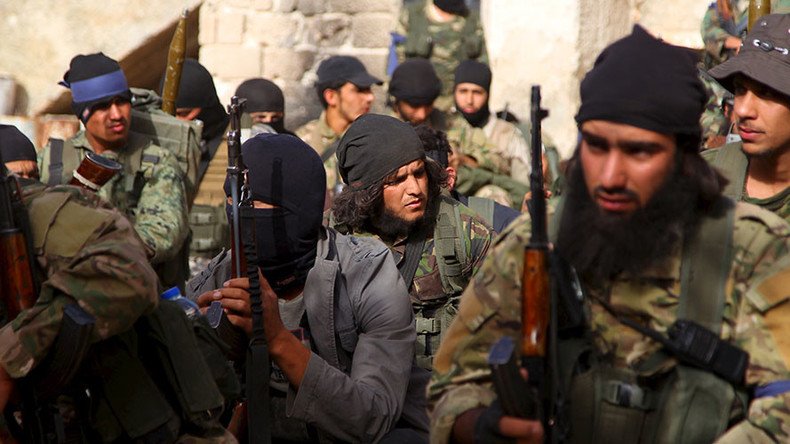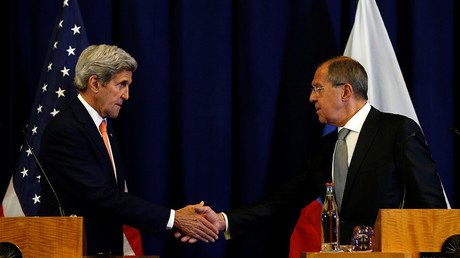Terrorist group or not? Lavrov says US-led coalition 'reluctant' to strike Al-Nusra Front in Syria

The US-led coalition is reluctant to strike Al-Nusra Front targets in Syria, Russian Foreign Minister Sergey Lavrov said, adding the status of the terrorist group, now renamed Jabhat Fateh al-Sham, will be discussed with Washington.
“I have a very demanding task now – not to let the list [of terrorist organizations] be reduced,” Lavrov said at a news conference on Tuesday.
“I have no reason not to trust [US Secretary of State] John Kerry, but what we see on the ground [in Syria] is that the coalition is very reluctant to strike the positions of the Nusra Front,” the minister noted.
He noted that there is much evidence that many of the stakeholders in the Syrian conflict have been increasingly viewing the Al-Nusra Front, now rebranded to Jabhat Fateh al-Sham, as a “force which should be preserved to facilitate the change of the regime in Syria” and calling for it to be legalized.
“I asked John Kerry about it directly, but he vocally denied the US having any plans to ‘shelter’ Nusra Front or to fend off the threat of airstrikes from [its positions].”
“This is a topic for a very serious discussion with our American partners,” Lavrov said, noting that while the obligation to separate Syrian opposition fighters from terrorists was taken up by the US almost a year ago, this has not happened yet.
On September 9, the two states agreed on a new ceasefire plan for Syria that includes a ban on government airstrikes in certain areas and cooperation on strikes against jihadists. The Foreign Minister said he would demand that the agreement be published in full.
“To ensure there should be no doubts as to how we will go about the business of implementing the agreement in its original form, we have suggested making it public after all. Not keeping it secret, contrary to the wish of our US partners. We have nothing to hide. Everything that is stated there is a matter of agreement,” Lavrov said, as cited by TASS news agency.
“And we suggest presenting this document to the UN Security Council for approval without any amendments,” Lavrov added.
The truce came into force on Monday evening, with no major violations or civilian casualties reported so far. According to Lavrov’s German counterpart, Frank-Walter Steinmeier, the truce has already resulted in a significant cessation of violence.
“In any case, within the first several hours we’ve witnessed a significant decrease in violence [on the ground,” the minister said, as cited by DPA news agency, noting however that it is too early to make any predictions for further developments. He said that the truce is highly important both for delivering humanitarian aid to the Syrian people and for the start of a political settlement of the crisis, being its “essential condition.”
The truce is expected to see a nationwide halt of Syrian government military action against rebels as well as cooperation on strikes against terrorist targets. The agreement also envisions a halt to offensives by the rebel forces in Syria and their separation from terrorist groups.













